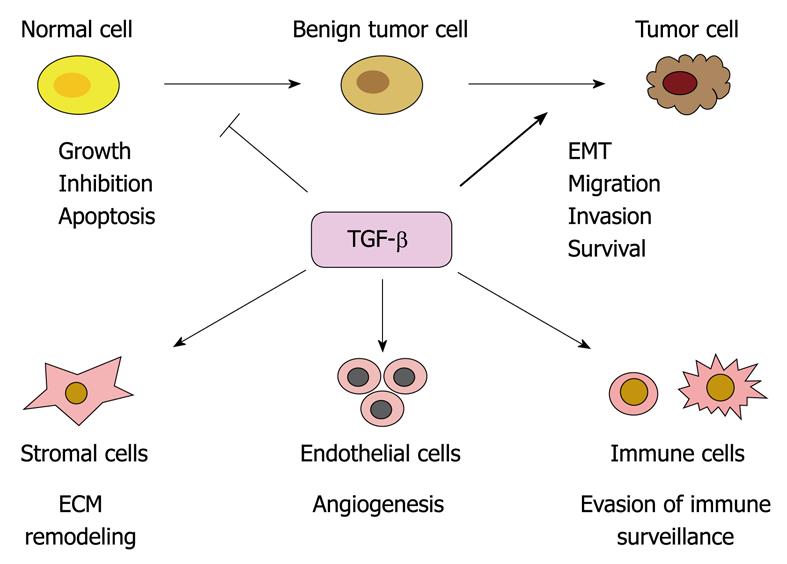Copyright
©2010 Baishideng.
World J Gastroenterol. May 7, 2010; 16(17): 2080-2093
Published online May 7, 2010. doi: 10.3748/wjg.v16.i17.2080
Published online May 7, 2010. doi: 10.3748/wjg.v16.i17.2080
Figure 3 Role of transforming growth factor (TGF)-β in cancer progression.
TGF-β is a secreted polypeptide that signals via receptor serine/threonine kinases and intracellular Smad effectors. TGF-β inhibits proliferation and induces apoptosis in various cell types. Accumulation of loss-of-function mutations in the TGF-β receptor or Smad genes classifies the pathway as a tumor suppressor in humans. In addition, various oncogenic pathways directly inactivate the TGF-β receptor-Smad pathway, thus favoring tumor growth. On the other hand, all human tumors overproduce TGF-β whose autocrine and paracrine actions promote tumor cell invasiveness and metastasis. Accordingly, TGF-β induces epithelial to mesenchymal transition (EMT).
- Citation: Hong S, Lee HJ, Kim SJ, Hahm KB. Connection between inflammation and carcinogenesis in gastrointestinal tract: Focus on TGF-β signaling. World J Gastroenterol 2010; 16(17): 2080-2093
- URL: https://www.wjgnet.com/1007-9327/full/v16/i17/2080.htm
- DOI: https://dx.doi.org/10.3748/wjg.v16.i17.2080









